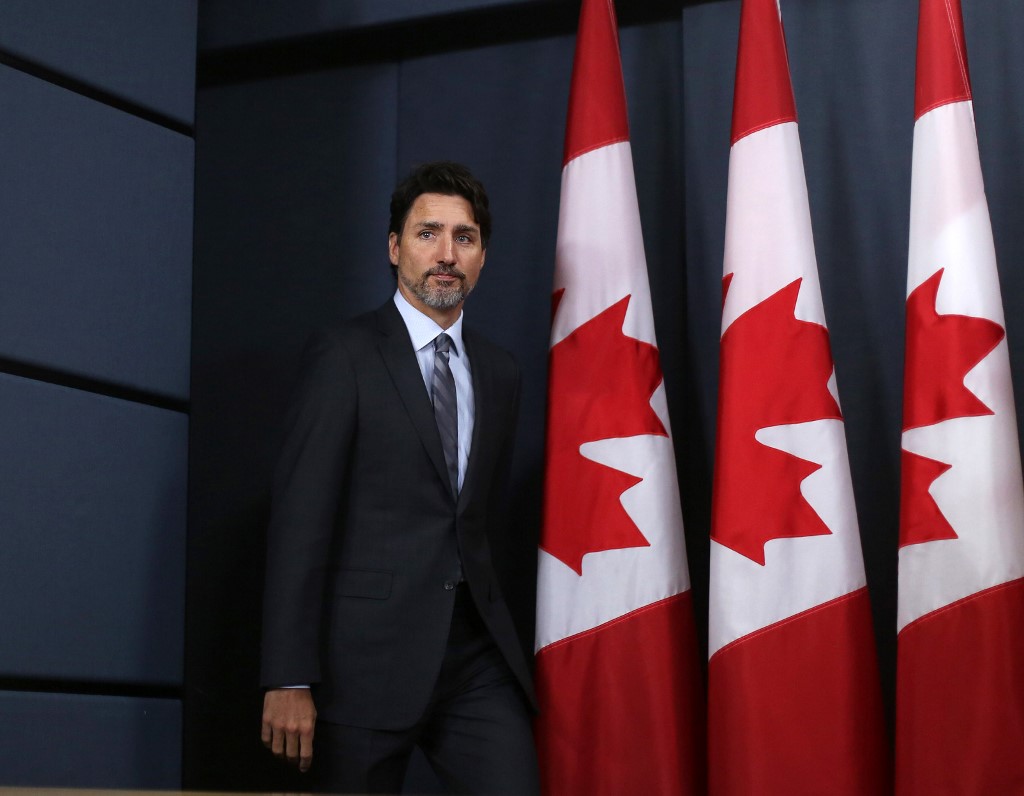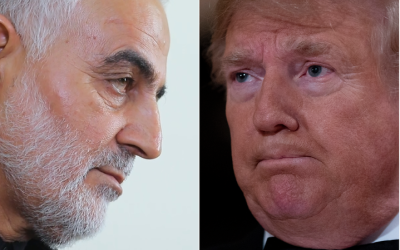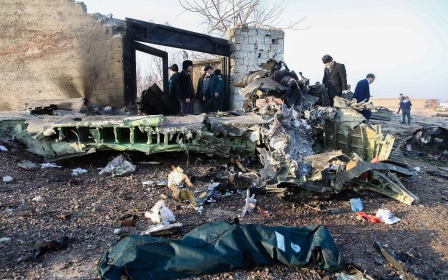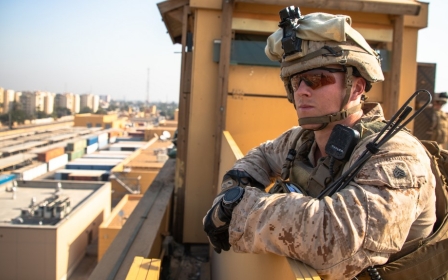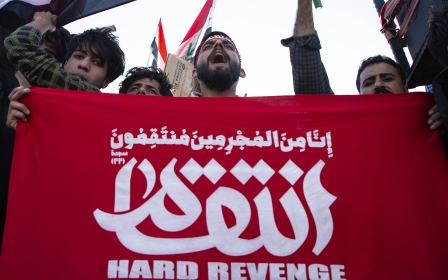Iran plane crash poses a challenge for Canada-US relations
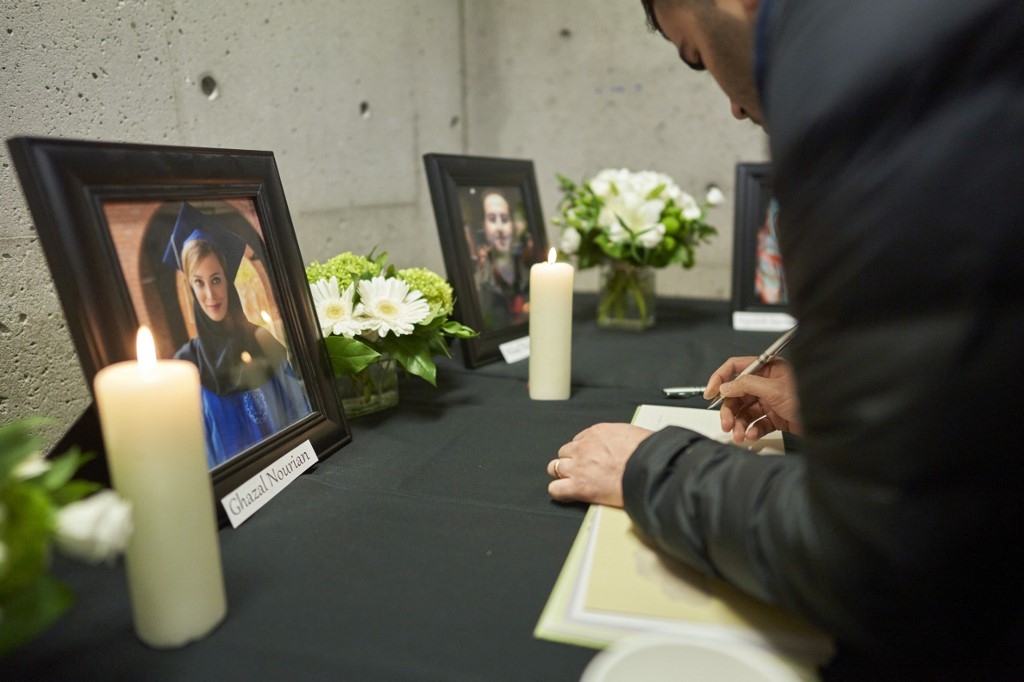
The crash of a Ukrainian passenger plane in Iran last week - which killed 176 people, including 57 Canadians - could further complicate an already fraught Canada-US relationship, experts say.
Tehran acknowledged on the weekend that the aircraft was mistakenly shot down by an Iranian missile, laying partial blame on the US for ratcheting up regional tensions through the assassination of Islamic Revolutionary Guard Corps (IRGC) commander Qassem Soleimani.
'We need to have a full and complete and credible investigation to establish exactly what happened'
- Canadian Prime Minister Justin Trudeau
Since the crash, Iran has come under heavy criticism for allowing a plane to fly in a de facto war zone in the first place. But some observers and politicians have also attributed a portion of the responsibility to US President Donald Trump, whose strike against Soleimani put the entire region on edge, culminating in an Iranian missile attack on bases housing US troops in Iraq. The passenger plane was shot down just hours later.
Asked at a recent news conference to comment on how much responsibility the US bears for the tragedy, Canadian Prime Minister Justin Trudeau was evasive.
"We need to have a full and complete and credible investigation to establish exactly what happened," Trudeau said. "That is what we are calling for, and that is what we are expecting will happen."
'Absolutely reprehensible'
At another news conference on Saturday, hours after Iran admitted to the missile hit, Trudeau acknowledged that the "conflict and tension" permeating the region factored into the crash, but said in the immediate term, Ottawa's focus would remain on comforting afflicted families and ensuring Canada is fully involved in the crash probe.
"I've had a number of conversations with the US president recently and will continue to," Trudeau said. "The reality is there have been significant tensions in that region for a long time, and what we are calling for now is de-escalation to ensure that there are no more tragic accidents or losses of civilian life."
The Canadian prime minister's careful wording highlights the situation's geopolitical complexity. Just days earlier, Canadian Foreign Affairs Minister Francois-Philippe Champagne issued a statement on the death of Soleimani that failed to condemn Trump's unilateral military action, riling some members of the Iranian-Canadian community.
Pouyan Tabasinejad, vice president of the Iranian Canadian Congress, said that while much of the immediate blame for the crash lay with Iranian authorities for failing to ground planes in a conflict zone, Trump was also at fault in a broader sense for stoking the tumultuous backdrop.
'The vast majority of Canadians do want a Canada that stands up for its values, but unfortunately this government has fallen short of that ideal right now'
- Pouyan Tabasinejad, vice president of the Iranian Canadian Congress
"[The Soleimani assassination] was a blatant act of war and something that destabilised the whole region, frankly - and this is something that risked the lives of millions of Iranians," Tabasinejad told Middle East Eye in an interview on Friday, before Tehran's admission of responsibility.
Canada's tacit approval of the Soleimani killing was "absolutely reprehensible", highlighting the need for Ottawa to craft a foreign policy independent of its southern neighbour, he said. Trudeau will likely face additional pressure from the Iranian-Canadian community in the coming days to take a harder line on the plane crash and the US role in fomenting tensions, Tabasinejad added.
"The vast majority of Canadians do want peace. The vast majority of Canadians do want a Canada that stands up for its values, but unfortunately, this government has fallen short of that ideal right now," he said.
US provocations
Tensions have been building between Tehran and Washington since May 2018, when Trump abandoned the Iran nuclear deal, a key achievement of his predecessor, former US President Barack Obama. Since then, the Trump administration has reinstated sanctions on Iran and came within inches of launching a war last June after the IRGC shot down an unmanned US surveillance drone. Months of brinkmanship in the Gulf included major attacks on Saudi oil infrastructure.
After the assassination of Soleimani, which the United Nations deemed a violation of international law, Trump threatened to attack 52 Iranian targets, including cultural sites, if Tehran took revenge for the IRGC commander's killing. Such attacks could constitute war crimes.
"Iranians significantly increased their air defence around Tehran after their missile attack on [US positions] in Iraq, expecting an American attack, as Trump had promised to target 52 sites … Against that highly tense backdrop, Iran air defence erroneously read the plane as a cruise missile, according to Iran military commanders," Shahir Shahidsaless, an Iranian-Canadian political analyst, told MEE.
Despite these roots of the conflict, Trudeau would not likely want to risk harming the country’s already sensitive relations with the US by holding Trump directly responsible for the crash, Shahidsaless said - particularly after the Iranians have now taken accountability for the strike, following days of misinformation from Tehran.
Potential repercussions
Aurel Braun, a political science professor at the University of Toronto, said Trudeau’s failure to reject outright the notion of US culpability could already complicate the bilateral relationship - and the prime minister will likely be advised not to go any further with his comments.
Given the preeminent importance of Canada's trade ties with the US, Braun told MEE, "it would be really, really unwise for him to say that the United States was responsible for Iran engaging in gross negligence, allowing a civilian aircraft to fly in a war zone at a time they were firing missiles, and then shooting down an aircraft".
Mark Ayyash, an expert on political violence and the Middle East at Alberta's Mount Royal University, said it was difficult to predict how this may ultimately affect Canada-US ties. It is possible, though unlikely, that Trudeau's tone will harden in the days ahead, as more details come to light about events leading up to the crash, he noted.
"I would doubt that it would go beyond the level of rhetoric in terms of harming American-Canadian relations on this, unless ... Trudeau actually comes out and not just evades [questions on the topic], but says 'I put this on Trump as much as I put this on Iran,'" he said. "That might have repercussions."
Middle East Eye propose une couverture et une analyse indépendantes et incomparables du Moyen-Orient, de l’Afrique du Nord et d’autres régions du monde. Pour en savoir plus sur la reprise de ce contenu et les frais qui s’appliquent, veuillez remplir ce formulaire [en anglais]. Pour en savoir plus sur MEE, cliquez ici [en anglais].


